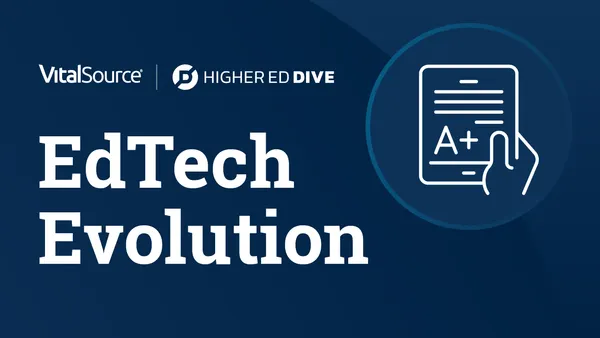Collaborations between universities are nothing new, but several factors are fostering more cooperative agreements between a number of higher education institutions — even one-time rivals.
Technology advances, an increasing acceptance of online learning, financial pressures, and international ambitions have been the catalysts for several recently announced joint projects between colleges and universities. Here are seven of the more notable examples.
Yale & Harvard computer science class
Starting in the fall of 2015, Yale University will offer an introductory computer-science class with live-streamed lectures from Harvard University. Students from both campuses will take the same tests and collaborate via computer and in person. Yale’s computer-science department has scarce resources, so the partnership on the popular, nearly-10-year-old course makes sense. A Yale computer-science professor will teach the Yale side of the course, adding material for both the Yale and Harvard students. Harvard also plans to live-stream at least one Yale course.
Jetstream
Indiana University is heading up a collaborative effort to build cloud-based supercomputing tools and data storage for university science and engineering research. The project, called Jetstream, will be funded over five years by about $11 million in grants from the National Science Foundation. Besides Indiana’s Pervasive Technology Institute, the team of collaborators includes the University of Texas at Austin’s Texas Advanced Computing Center; University of Chicago; University of Arizona; University of Texas, San Antonio; Johns Hopkins University; Pennsylvania State University; Cornell University; University of Arkansas at Pine Bluff; University of Hawaii; the National Snow and Ice Data Center; the Odum Institute at the University of North Carolina; and the National Center for Genome Analysis Support.
Carnegie Mellon & Pittsburgh library systems
Earlier this month, Carnegie Mellon University and the University of Pittsburgh announced that their library systems will work together to better cover the areas of expertise required for the combined education and research needs of the two schools. Carnegie Mellon’s dean of libraries, Keith Webster, and Pitt’s School of Information Sciences dean, Ronald Larsen, will write an interim report by March 2015 on collaboration options, seeking comments from faculty, students, and other stakeholders at their schools and in the Pittsburgh region. Their final report is due by June 2015.
South Dakota public universities
Four public universities in South Dakota are collaborating on a new master of education degree program for training principals and K-12 administrators in the state. The degree will be offered by Black Hills State University, Northern State University, South Dakota State University, and the University of South Dakota starting next summer. The four schools will share the program, to include a mix of face-to-face classroom time, online instruction, and work in the field similar to internships, but interspersed throughout the program rather than at the end.
West Chester U & China
West Chester University in Pennsylvania and Guizhou University in China signed a three-year extension to a partnership agreement this month that will foster faculty and student exchanges and potential research partnerships between the universities. West Chester plans faculty and student exchange in early 2015, with 10 to 12 Guizhou students coming to the U.S. for 2015 summer sessions. The university hopes to host Guizhou students in their final year of undergraduate studies with the idea of enticing them to enroll in graduate programs. A faculty committee will look at potential joint research projects in science, technology, engineering and math.
Dartmouth & Bowdoin financial accounting course
Dartmouth College’s Tuck Business School in New Hampshire and Bowdoin College in Maine are collaborating on a financial accounting course that will be taught mostly online. The course will be offered to Bowdoin students starting in the spring. An accounting professor from the business graduate school worked with economics professors at Bowdoin to create the course, and Tuck hopes the program will encourage more Bowdoin students to apply to Tuck’s MBA program. Tuck faculty will visit Bowdoin for in-person teaching during the first and last weeks of the course, and a Bowdoin professor will work with the students in weekly discussions. If the collaborative course is successful, Tuck will probably look to collaborate with other schools on similar programs.
Unizin
Unizin, the nonprofit technology consortium, added Pennsylvania State University as a member in November. Unizin aims to develop technology that will allow its members to share content and learning analytics without giving up ownership or control, and to develop, and own, the infrastructure and technology for disseminating that content. The price of joining is about $1 million, or $350,000 a year for three years. Along with Penn State, the members so far include Colorado State University, Indiana University, Oregon State University, the University of Florida, the University of Michigan, the University of Minnesota, and the University of Wisconsin-Madison.
Would you like to see more education news like this in your inbox on a daily basis? Subscribe to our Education Dive email newsletter! You may also want to read Education Dive's look at 3 emerging technologies reimagining higher ed in 2015 and beyond.










